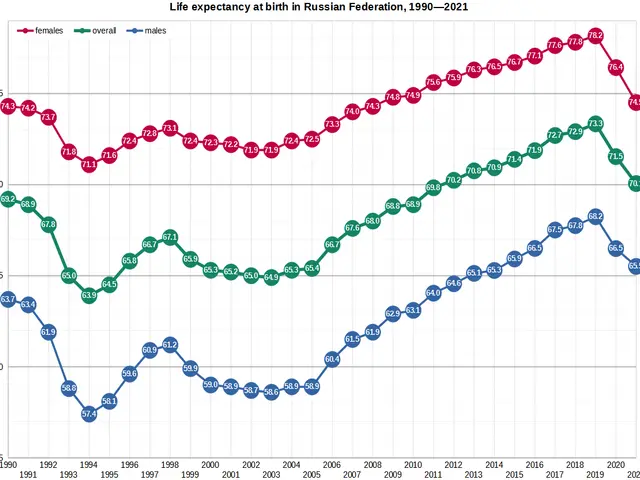Unidentified Jet Over Baltic Sea: German Air Force Deploys Eurofighters
Military-activated radar in reaction to a Russian air force jet's approach. - Military Alert Sounds in Response to Russian Military Aircraft
Caught off guard by a Russian military aircraft flying without a transponder signal, the German Air Force was forced to respond swiftly. Two Eurofighters were dispatched from Laage Air Base in Mecklenburg-Vorpommern on Monday morning, the German officials confirmed.
The Eurofighters took flight at 11:20 AM and returned to base at 12:45 PM, according to the spokesperson. Despite the intense monitoring, the nature of the uninvited visitor still remains a mystery, with the authorities currently examining the available photos for clues.
Eurofighters on Alert: Regular Protocol
Known as the Quick Reaction Alert (QRA), the Eurofighters are always ready to take off within minutes to probe and, if required, confront potential threats. These routine checks play a crucial role in ensuring the region's security.
Apparently, such frequent deployments are rather routine for the German Air Force, with one to two instances every month due to the loss of communication with civilian aircraft, a situation referred to as "COMLOSS".
- Eurofighter
- German Air Force
- Military Aircraft
- Mecklenburg-Vorpommern
While the current incident involving the unidentified Russian aircraft doesn't seem to be a unique occurrence, it underscores the ongoing tension in the region. In recent times, NATO member countries like the UK, Sweden, and Denmark have also been actively engaged in intercepting Russian aircraft flying over the Baltic Sea.
The German Air Force is often called upon to deploy Eurofighters due to incidents like the loss of communication with civilian aircraft, commonly referred to as "COMLOSS". These Eurofighters, such as those dispatched from Mecklenburg-Vorpommern, are part of the Quick Reaction Alert (QRA) protocol, ready to intercept potential threats at a moment's notice. This routine procedure underscores the continuous vigilance required within the aerospace industry, particularly in regions fraught with tension, like the Baltic Sea, where NATO members like Germany, the UK, Sweden, and Denmark have frequently scrambled to intercept Russian military aircraft.









